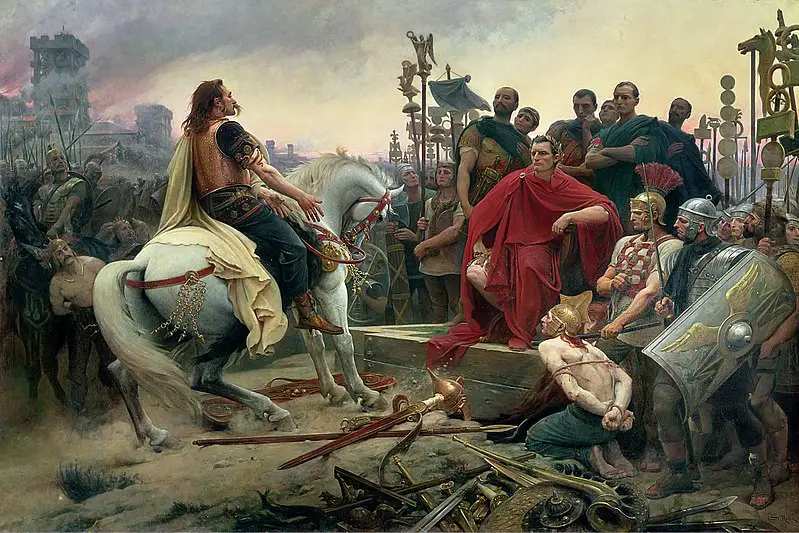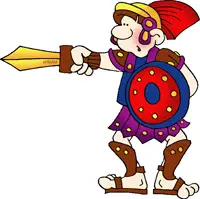Latin Literature
Ancient Roman Literature
Like today, many Ancient Romans strived to earn a living by writing. Some would read their work in public, like a musician performing on the street, or like an author promoting a new release in a bookstore today.
Fortunately, many of these writers were talented, and much of their work has survived, at least in translations. Below is a look at important writers of Latin literature, including the following:

- Livius Andronicus
- Plautus
- Terence
- Cicero
- Julius Caesar
- Varro
- Virgil
- Horace
- Seneca
- Lucan
- Petronius

Livius Andronicus adapted Homer’s The Odyssey for a Latin audience in 240 B.C., marking the beginning of key Roman works..
 Plautus (Titus Maccius Plautus) was a playwright whose comedies are likely the earliest Roman writing to have survived. He lived from 254-184 B.C., and he also wrote pieces for musical theater.
Plautus (Titus Maccius Plautus) was a playwright whose comedies are likely the earliest Roman writing to have survived. He lived from 254-184 B.C., and he also wrote pieces for musical theater.

Terence (Publius Terentius Afer) was another playwright. A former slave, who was educated and freed, it is believed that all six of the plays Terence wrote managed to survive. Like Plautus, Terence’s comedies were inspired by Greek plays

The first century B.C. saw Latin literature really hit its stride, with Cicero generally accepted as one of the best writers of his time. His letters alone have taught us so much about this period of Roman history, yet his strength lied in his philosophical writings and his orations (speeches).

Before assuming the title of dictator, Julius Caesar was a respected writer himself. His orations were very moving, as you would expect from such a historical figure.

He also wrote about his military conquests, which entertained Romans at the time and inspired future generations of leaders.

Although most of his work has been lost, Varro was another important writer from this period. It is estimated that he wrote nearly 100 pieces, yet only one book has survived completely. Varro wrote about many topics, including religion, poetry, and agriculture.

Augustus served as Emperor of Rome from 27 B.C. to 14 A.D., and this period is considered the Augustan Age of Latin literature. Virgil (Publius Vergilius Maro) wrote during this time and is one of the best writers and poets in Rome’s history. His Aeneid serves as a companion to Homer’s Iliad and Odyssey and he has inspired countless writers over the past 2,000 years.

Another well-known poet from the Augustan Age is Horace (Quintus Horatius Flaccus). Often included in any list of the best poets in history, Horace wrote about politics, love, and philosophy, among other subjects. A number of his works are still read today, mainly his Odes.

The Imperial Period began with the death of Augustus in 14 A.D. and lasted until approximately 200 A.D. During this time, writers became more conscious of the world around and them and began to ask deeper questions. Seneca, for example, wrote about floods, earthquakes, and other events occurring in nature. He also explored moral themes like mercy and generosity.
Around 60 A.D. Seneca’s nephew Lucan wrote about Caesar and Pompey in an epic poem titled Pharsalia, while Petronius published Satyricon, which is known as the first Latin novel. Unfortunately Petronius’s work did not survive in its entirety.

While we know that most of these writers were respected during their careers and we have the opportunity to still read some of their work today, we cannot be sure about how much money they were able to earn as writers. It is possible that the writers earned a small fee for each copy that was sold, similar to royalty payments for authors today. But we can safely assume that publishers were making money and that printing books was likely a lucrative business.

For us, the surviving pieces offer a chance to see what life was truly like for Ancient Romans. Like the ancient artifacts we discover and the pieces of art depicting daily life, these writers and many of their peers have provided us with important details about a wonderful period in history.



